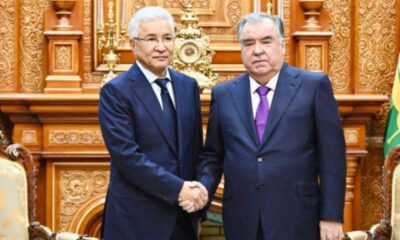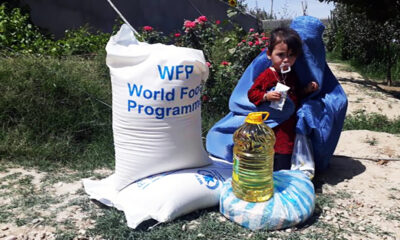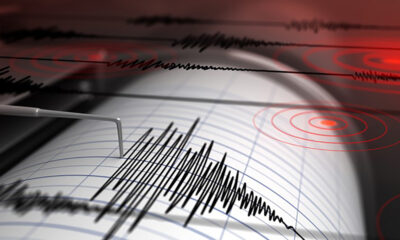World
Israel bombards Gaza, Lebanon as Netanyahu convenes war cabinet

Israel bombarded Gaza with air strikes early on Monday and its aircraft struck southern Lebanon overnight, as Israeli Prime Minister Benjamin Netanyahu convened a meeting of his top generals and his war cabinet to assess the escalating conflict.
Israel’s attacks concentrated on the Gaza Strip’s center and north, Palestinian media reported. A strike on a house near the Jabalia refugee camp, in northern Gaza, killed several Palestinians and wounded others, according to media reports.
In the Israeli-occupied West Bank, two Palestinians were killed at the Jalazone refugee camp near Ramallah, the Palestinian health ministry said on Monday.
Residents told Reuters that Israeli forces raided the camp and carried out widespread arrests, as they clashed with gunmen and some youths who threw stones. The Israeli army has not issued a statement about the incident.
Health authorities in Gaza said at least 4,600 people were killed in Israel’s two-week bombardment that began after a Hamas Oct. 7 rampage on southern Israeli communities in which 1,400 people were killed and 212 were taken into Gaza as hostages.
Palestinian Hamas leader Ismail Haniyeh and Iranian Foreign Minister Hossein Amirabdollahian discussed in a call late on Sunday the means of stopping Israel’s “brutal crimes” in Gaza, Hamas said in a statement.
Israel has amassed tanks and troops near the fenced border around Gaza for a planned ground invasion aiming to annihilate Hamas.
Fears that the Israel-Hamas war could mushroom into a wider Middle East conflict rose over the weekend with Washington warning of a significant risk to U.S. interests in the region and announcing a new deployment of advanced air defenses.
The Pentagon has already dispatched a significant amount of naval power to the Middle East, including two aircraft carriers, support ships and about 2,000 Marines, to help deter attacks by Iran-affiliated forces.
“What we’re seeing … is the prospect of a significant escalation of attacks on our troops and our people throughout the region,” U.S. Defense Secretary Lloyd Austin told ABC’s “This Week” program on Sunday.
China’s Middle East special envoy Zhai Jun, who is visiting the region, warned that the risk of a large-scale ground conflict was rising and that spillover conflicts in the region were “worrisome”, Chinese state media said on Monday.
Iranian security officials told Reuters Iran’s strategy was for Middle East proxies like Hezbollah to pursue limited strikes on Israeli and U.S. targets but to avoid a major escalation that would draw in Tehran, a high-wire act for the Islamic Republic.
In neighboring Syria, where Hamas’ main regional backer Iran has a military presence, Israeli missiles hit Damascus and Aleppo international airports early on Sunday, putting both out of service and killing two workers, Syrian state media said.
Along Israel’s northern border with Lebanon, the Iran-backed Hezbollah group has clashed with Israeli forces in support of Hamas in the deadliest escalation of frontier violence since an Israel-Hezbollah war in 2006.
Early on Monday, Israeli aircraft struck two Hezbollah cells in Lebanon that were planning to launch anti-tank missiles and rockets toward Israel, its military said. Israel’s military also said it struck other Hezbollah targets, including a compound and an observation post.
Hezbollah said on Monday that one of its fighters was killed, without providing details. Israel’s military said 7 troops have been killed on the Lebanese border since the latest conflict began, Reuters reported.
With violence around its heavily guarded borders increasing, Israel on Sunday added 14 communities close to Lebanon and Syria to its evacuation contingency plan in the north of the country.
Palestinian Prime Minister Mohammad Shtayyeh called on the international community to create “a united front” to stop Israel’s attacks in Gaza and allow desperately needed aid which has only begun to trickle in.
A second convoy of 14 aid trucks entered the Rafah crossing to the besieged Gaza Strip on Sunday night, and U.S. President Joe Biden and Netanyahu affirmed in a call “there will now be continued flow of this critical assistance into Gaza”, the White House said.
The U.N. humanitarian office said the volume of aid entering so far was just 4% of the daily average before the hostilities and a fraction of what was needed with food, water, medicines and fuel stocks running out.
World
Trump says Ukraine talks may be going OK, but there is a time ‘to put up or shut up’
Trump has shown signs of losing patience and has spoken of imposing secondary sanctions on countries that buy Russian oil if he feels Moscow is dragging its feet on a deal.
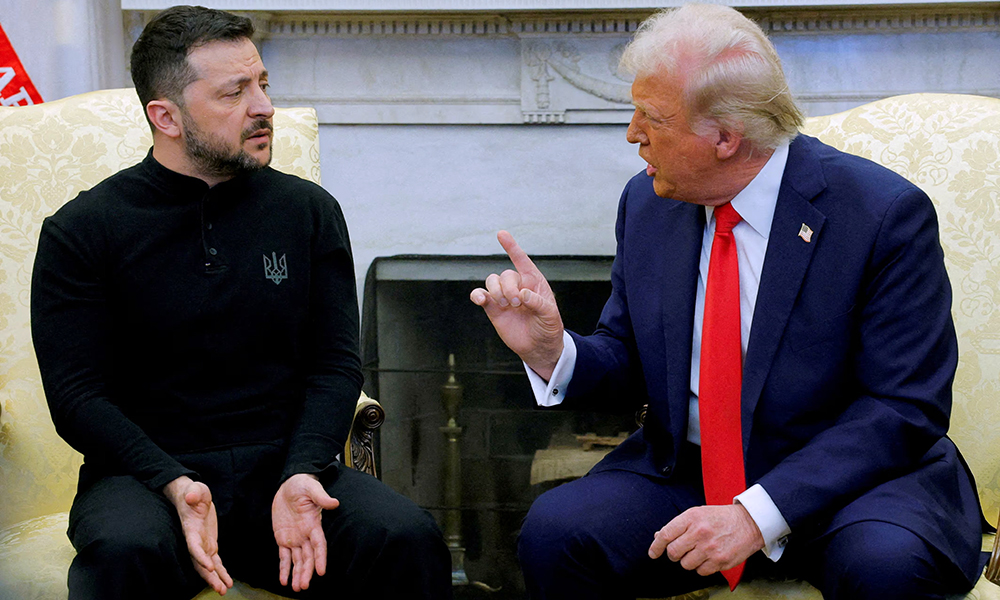
U.S. President Donald Trump said on Saturday that talks aimed at ending the war in Ukraine may be going OK, but “there’s a point at which you just have to either put up or shut up.”
Trump made the comment to reporters a day after he showed frustration with Russia and told it to “get moving” on reaching a deal.
“I think Ukraine-Russia might be going OK, and you’re going to be finding out pretty soon,” Trump told reporters on Air Force One, while adding:
“There’s a point at which you just have to either put up or shut up and we’ll see what happens, but I think it’s going fine.”
On Friday, Trump’s special envoy Steve Witkoff held talks with Russian President Vladimir Putin about the search for a peace deal.
The talks came at a time when U.S.-Russia dialogue aimed at agreeing a ceasefire ahead of a possible peace deal to end the war appeared to have stalled over disagreements around conditions for a full pause in hostilities.
Trump has shown signs of losing patience and has spoken of imposing secondary sanctions on countries that buy Russian oil if he feels Moscow is dragging its feet on a deal.
Earlier on Saturday, Russian Foreign Minister Sergei Lavrov praised Trump for what he said was a better understanding of the Ukraine conflict than any other Western leader.
“When we speak about eliminating root causes of any conflict, including the Ukrainian conflict, this is the only way to resolve the problem and to establish long-lasting peace. Remove root causes,” Lavrov said at the Antalya Diplomacy Forum in southern Turkey.
“President Trump was the first and so far, I think, almost the only one among the Western leaders who repeatedly, with conviction, several times stated that it was a huge mistake to pull Ukraine into NATO. And this is one of the root causes which we quoted so many times.”
Putin, who launched Russia’s invasion of Ukraine in February 2022, has long cast Ukraine’s tilt to the West, including its desire to join NATO, as a threat to Russia.
Commenting on an agreement between Ukraine and Russia to pause strikes on each other’s energy facilities, Lavrov said that Moscow has been keeping its word and accused Kyiv of striking Russian energy infrastructure almost every day.
“I gave to our colleagues from Turkey, to (Foreign) Minister (Hakan) Fidan, what we gave to the Americans, to the U.N., to the OSCE – the list of facts listing the attacks by Ukraine during the last three weeks against Russian energy infrastructure.”
Ukraine has made similar accusations against Russia since the U.S.-backed moratorium was approved.
World
White House says ‘all hell to pay’ should Iran develop nuclear weapon

President Donald Trump wants Iran to know that there will be “all hell to pay” if it does not abandon its nuclear program, his press secretary told reporters on Friday ahead of talks on Saturday between U.S. and Iranian delegations.
White House press secretary Karoline Leavitt said Trump’s “ultimate objective is to ensure that Iran can never obtain a nuclear weapon” and that Trump believes in diplomacy, but that “all options are on the table” if diplomatic efforts fail, Reuters reported.
“But he’s made it very clear to the Iranians, and his national security team will as well, that all options are on the table, and Iran has a choice to make. You can agree to President Trump’s demand, or there will be all hell to pay, and that’s how the president feels. He feels very strongly about it,” Leavitt said.
U.S. special envoy Steve Witkoff is set for talks on Saturday with an Iranian delegation in Oman. Iranian state media said Iran would be represented by Foreign Minister Abbas Araqchi, with Omani Foreign Minister Badr al-Busaidi as intermediary.
Trump in February restored his “maximum pressure” campaign on Iran, which includes efforts to drive its oil exports down to zero, in order to stop Tehran from obtaining a nuclear weapon. He said earlier this week that if the talks are unsuccessful, “Iran is going to be in great danger.”
World
Tourist helicopter crashes into New York’s Hudson River, killing all six aboard
Agustin Escobar, an executive at Germany-based technology company Siemens was among those killed according to the New York Times, which cited unnamed law enforcement sources, Reuters reported.
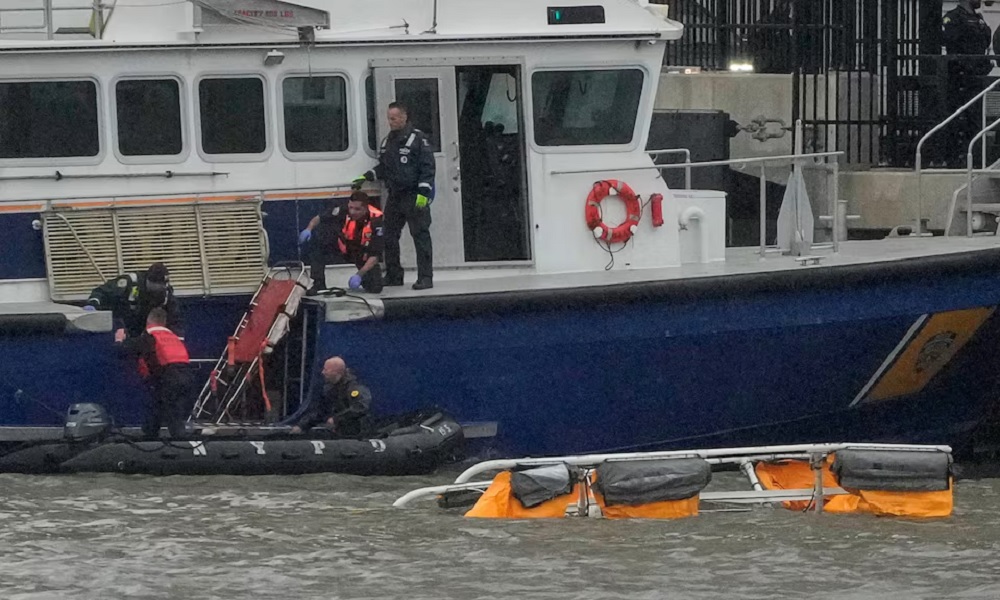
A tourist helicopter plummeted upside down into New York City’s Hudson River on Thursday killing all six people on board, including a Spanish family with three children and the pilot, Mayor Eric Adams said.
Agustin Escobar, an executive at Germany-based technology company Siemens was among those killed according to the New York Times, which cited unnamed law enforcement sources, Reuters reported.
New York City police referred requests for confirmation that Escobar was aboard the helicopter to the U.S. Coast Guard. The Coast Guard said in a statement that it did not yet have the names of the victims. Siemens did not immediately respond to a request for comment outside normal business hours.
Video of the crash showed what appeared to be a large object plunging into the river, followed seconds later by what appeared to be a helicopter blade. Afterwards, emergency and police boats were seen circling around a patch of river where the helicopter was submerged, with only what appeared to be the aircraft’s landing gear poking above the water’s surface.
The Bell 206 chopper, operated by New York Helicopter Tours, departed at about 3 p.m. ET (1900 GMT) from a downtown helicopter pad and flew north over the Hudson River, New York Police Commissioner Jessica Tisch said.
It turned south when it reached the George Washington Bridge and crashed minutes later, hitting the water upside down and getting submerged near Lower Manhattan at around 3:15 p.m., just off Hoboken, New Jersey, Tisch added.
Divers helped remove the victims from the water. Four were pronounced dead at the scene, while two others were taken to area hospitals where they died.
The airspace around Manhattan is crowded with helicopters offering tourists a bird’s-eye view of the sights, with at least two dozen operators listed on tour website Viator. Many of the operators also offer helicopter shuttle services to the area airports.
New York Helicopter Tours, which offers sightseeing flights for as little as $114 per person on its website, did not respond immediately to a request for comment about the crash.
Transportation Secretary Sean Duffy said the tour helicopter was in Special Flight Rules Area established in New York that means no air traffic control services were being provided when it crashed.
The Federal Aviation Administration and the National Transportation Safety Board will investigate, with the NTSB leading the investigation.
Duffy said the FAA was also launching a Safety Review Team on Thursday evening. NTSB Chair Jennifer Homendy and a team from the board will arrive in New York later on Thursday and plan to hold a press briefing on Friday.
New York City has a history of accidents involving helicopters. In 2018, five passengers aboard a helicopter died when it crashed into the East River, while the pilot survived. The helicopter was on a charter flight that featured an open door to allow passengers to take photographs of the skyline.
A New York City Police spokesperson said that police boats had assisted in Thursday’s rescue efforts.
Helicopter safety has been a topic of discussion in the U.S. Congress after 67 people were killed in a crash between an American Airlines regional jet and Army helicopter on Jan. 29 near Reagan National Airport in Washington, D.C. The FAA has since permanently restricted helicopter traffic near that airport and is reviewing helicopter operations near other major airports.
-

 Sport4 days ago
Sport4 days agoAfghanistan win U-19 cricket series despite rain-impacted loss to Nepal
-
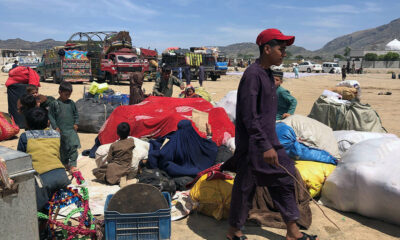
 Latest News5 days ago
Latest News5 days agoPakistan expels thousands of Afghan nationals in fresh drive, says UNHCR
-
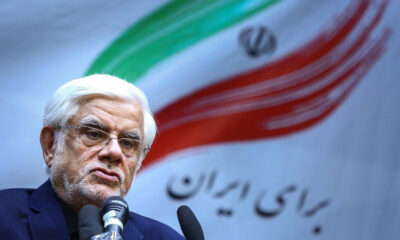
 Latest News4 days ago
Latest News4 days agoIran’s Vice President advocates stronger ties with neighbors, especially Afghanistan
-
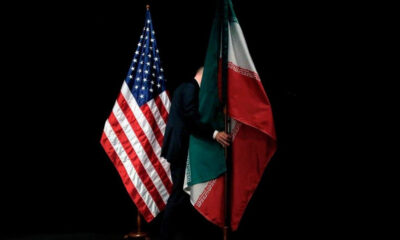
 Regional4 days ago
Regional4 days agoUS energy secretary sees tighter sanctions on Iran without deal
-
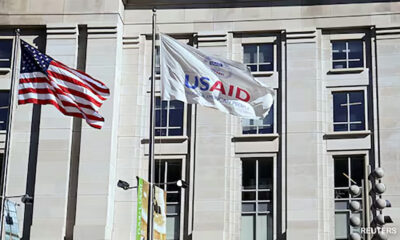
 Latest News5 days ago
Latest News5 days agoTrump administration moves to restore some terminated foreign aid programs, sources say
-
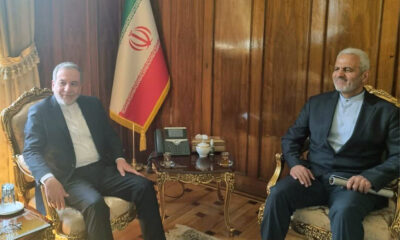
 Latest News4 days ago
Latest News4 days agoBigdeli updates Iran’s FM on current status of bilateral relations with Kabul
-
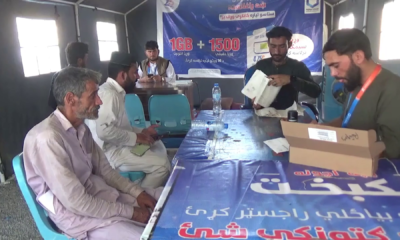
 Latest News4 days ago
Latest News4 days agoAWCC distributes free SIM cards to returning refugees from Pakistan
-

 International Sports4 days ago
International Sports4 days agoIPL 2025: Arya slays CSK for Punjab Kings








